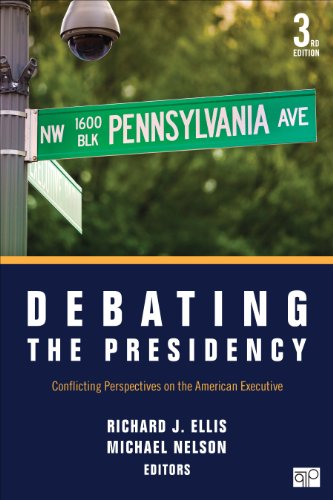Each essay―written in the form of a debate resolution― offers a compelling yet concise view on the American executive. In the 5 pro/con pairs that are new to this edition, contributors debate the presidential power to persuade, whether Congress should have to vote up or down on legislation proposed by the president, if the unitary executive is a myth, if presidents have the authority to appoint "czars" without Congressional consent, and if the people should have the power to recall an unethical, corrupt, or ineffectual president. Ellis and Nelson introduce each pair of essays, giving students context and preparing them to read each argument critically, so they can decide for themselves which side of the debate they find most persuasive.
Richard J. Ellis is Mark O. Hatfield Professor of Politics at Willamette University. His books include The Development of the American Presidency (2015; 2nd ed.); Debating Reform: Conflicting Perspectives on How to Fix the American Political System (with Michael Nelson, 3nd ed., 2016); Judging the Boy Scouts of America: Gay Rights, Freedom of Association, and the Dale Case (2014); Judging Executive Power: Sixteen Supreme Court Cases That Have Shaped the American Presidency (2009); and Presidential Travel: The Journey from George Washington to George W. Bush (2008). In 2008 he was named the Carnegie Foundation for the Advancement of Teaching Oregon Professor of the Year.
Michael Nelson is Fulmer Professor of Political Science at Rhodes College and a senior fellow at the University of Virginia’s Miller Center. A former editor of the Washington Monthly, his most recent books include Trump’s First Year (2018); The Elections of 2016 (2018); The Evolving Presidency: Landmark Documents (2019); The American Presidency: Origins and Development (with Sidney M. Milkis, 2011); and Governing at Home: The White House and Domestic Policymaking (with Russell B. Riley, 2011). Nelson has contributed to numerous journals, including the Journal of Policy History, Journal of Politics, and Political Science Quarterly. He also has written multiple articles on subjects as varied as baseball, Frank Sinatra, and C. S. Lewis. More than fifty of his articles have been anthologized in works of political science, history, and English composition. His 2014 book, Resilient America: Electing Nixon, Channeling Dissent, and Dividing Government, won the American Political Science Association’s Richard E. Neustadt Award for best book on the presidency published that year; and his 2006 book with John Lyman Mason, How the South Joined the Gambling Nation, won the Southern Political Science Association’s V.O. Key Award.
